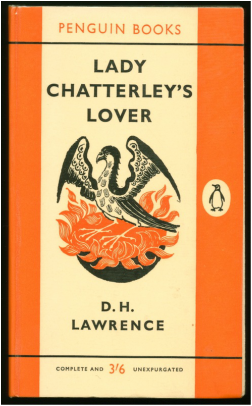JOHN I. CLARKE
“Is this the kind of book you would wish your wife or servant to read?”
There is no more infamous comment in British social history than that made by Chief Prosecutor Mervyn Griffiths-Jones at the Lady Chatterley’s Lover obscenity trial in 1960. By that time, Elvis Presley had been gyrating his hips in a scandalising fashion as he introduced the devil’s music into America by way of a white boy with a black man’s voice. In Britain, in George Harrison’s words, the Beatles would soon be saving the country from boredom. But also in Britain, the establishment was getting all shook up over those two great shibboleths: sex and class.
The Lady Chatterley’s Lover obscenity trial featured a book written some thirty two years earlier by an author who had been dead for thirty years. Nevertheless, the book became notorious.
How Lawrence would have hated the smuttiness of it all, how he would have railed against the title of his book becoming a byword for something mucky. So what better time for the novel to be reconsidered, for having its essential truths re-invigorated in poem and play form? Laura Potts has done precisely that in her poem, Chatterley which discards any suggestion of prurience and concentrates on a sensuous evocation of passion. It captures an essential life force. In addition, her play script captures a yearning for fulfilment accentuating both characters at the centre of the story. There is no dominant figure in this relationship, no exploitation, together they can be fully realised human beings. Chatterley is an independent woman voicing an unrestrained, honest expression of desire: “You burn and I simmer.”
Laura’s play was due to be staged recently in York. That it didn’t happen is a shame. The script is calling out for an artistic and dramatic vision, someone who can grasp and present these voices articulating the profound truths about sexuality, rejecting the prudery which has for so long dogged British attitudes. Above all, the script reveals Lawrence as an artist well ahead of his time. Misogynist? A ludicrous accusation when his work gives rise to such a powerful, independent female character; which is not to downplay Laura Potts’ creative talents either. Both of these writers arrive at the same conclusion: life is there to be lived fully.
“Darling. Your name sleeps hard on my lips. Kiss.
In the candlelight, my lost body over you.
The darkening eyes
…………….the sly bruise
……………………..the bite.
Night and my dress like a corpse on the floor.”
Laura Potts in Margutte: The Wakefield Poets, Laura Potts



